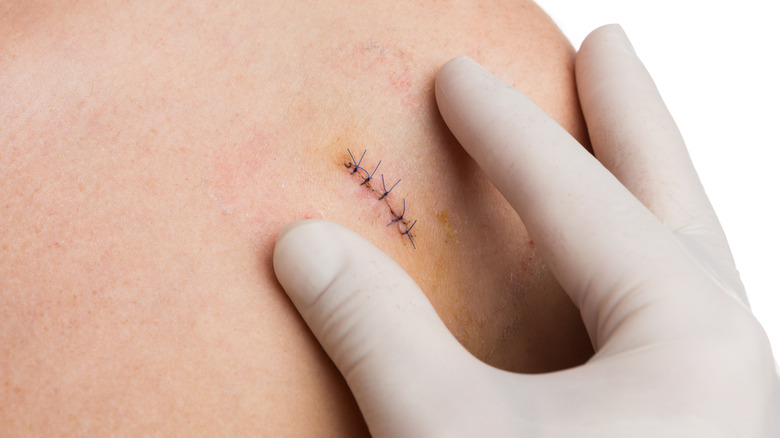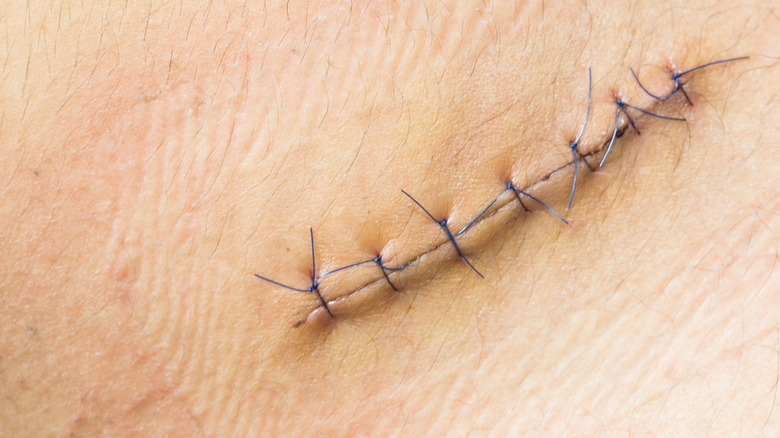What You Should Do If Your Stitches Start To Itch
Itchiness is a normal part of wound healing (via Cleveland Clinic). While uncomfortable, it's actually a good sign that the site of the incision is getting better. Itching means your cells are rebuilding themselves (via Healthline).
During cell reconstruction, chemical and mechanical practices are taking place that lead to itching. As the wound heals, the body's inflammatory cells rush to the site to clean the wound and prepare for new cells. Some of these inflammatory cells are histamines, which cause itching.
While it might be tempting to scratch the area where your stitches are, don't. This can lead to infection and also disrupt the process of cell reconstruction, which will delay your healing. The delicate new layers of tissue that are forming can easily be torn apart. This will set you back to earlier stages of the healing process, taking more time for the wound to get better and potentially leading to even more itching. Complications like chronic wounds or infections can also occur.
How to find relief from itchy stitches
You know you're not supposed to scratch stitches, so what can you do instead to find some relief? First, make sure you are caring for your wound properly. Keep stitches dry for the first 24 to 48 hours (via Healthline). After that, you should clean the area around the stitches with soap and cool water once or twice a day. Dab the incision site, but do not rub it. Follow your doctor's orders for changing the dressing and always wash your hands before doing so.
To find relief from an itchy, healing wound, there are several remedies to try. First, apply an ice pack or cold compress to the affected area. Keep the skin moisturized and protect the wound from irritation with clothing or a covering. You can also try taking an over-the-counter antihistamine like Benadryl. If itchiness gets worse instead of better over time, contact your doctor, as this might signal an infection or that your stitches are too tight (via Cleveland Clinic). For wounds that are more severe and take longer to heal, your doctor may prescribe additional medications.


